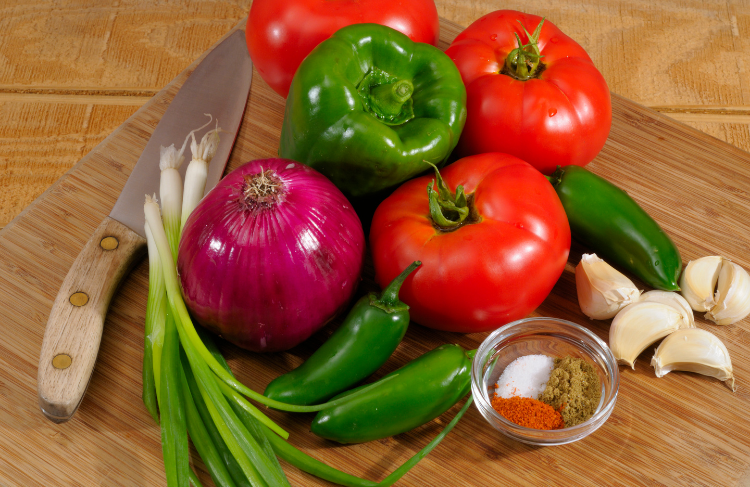De Rol van Omega3 Vetzuren in Spieropbouw en Herstel
Essentiële informatie over omega-3; vetzuren, voeding, bronnen, vis en supplementen. In deze gids le...
Holle Goat Milk Formula Stage 2 is a popular choice for parents who are looking for an alternative to cow's milk-based formulas.

Holle Goat Milk Formula Stage 2 is a follow-on formula designed for infants from 6 months onwards. It is made from organic goat milk and is a suitable alternative for babies who may have a sensitivity to cow's milk. On the other hand, cow's milk is the most commonly consumed type of milk worldwide and is often used as a base for infant formula. Both options have their own set of nutritional benefits and considerations, making it important for parents to understand the differences between the two in order to make an informed decision for their child's health and well-being.
Holle Goat Milk Formula Stage 2 is a popular choice for parents who are looking for an alternative to cow's milk-based formulas. It is made from organic goat milk, which is known for being easier to digest compared to cow's milk. Additionally, goat milk contains different proteins and fats compared to cow's milk, which may be beneficial for infants who have difficulty digesting cow's milk. On the other hand, cow's milk is a staple in many households and is often the first choice for infant formula. However, some babies may have an intolerance or allergy to cow's milk, leading parents to seek out alternative options such as goat milk formula. Understanding the nutritional differences between the two options is crucial in making the best choice for your baby's health.
Nutritional Differences between Holle Goat Milk Formula Stage 2 and Cow's Milk
Holle Goat Milk Formula Stage 2 and cow's milk both offer a range of essential nutrients for growing infants, but there are some key differences in their nutritional profiles. Goat milk is known for being easier to digest compared to cow's milk, making it a suitable option for babies who may have digestive issues or sensitivities. Additionally, goat milk contains higher levels of certain vitamins and minerals such as vitamin A, calcium, and potassium compared to cow's milk. These nutrients are essential for healthy growth and development in infants, making goat milk formula a beneficial alternative for some babies.
On the other hand, cow's milk is a good source of protein and fat, which are important for a baby's growth and development. However, some babies may have difficulty digesting the proteins in cow's milk, leading to digestive issues or allergies. In contrast, goat milk contains different proteins that are easier for some babies to digest, making it a suitable alternative for those with sensitivities to cow's milk. Understanding the nutritional differences between the two options is important in making an informed decision for your baby's health and well-being.
Digestibility and Allergies: Comparing Holle Goat Milk Formula Stage 2 and Cow's Milk
One of the key considerations when choosing between Holle Goat Milk Formula Stage 2 and cow's milk is the digestibility and potential for allergies. Goat milk is known for being easier to digest compared to cow's milk, making it a suitable option for babies who may have digestive issues or sensitivities. Additionally, goat milk contains different proteins and fats compared to cow's milk, which may be beneficial for infants who have difficulty digesting cow's milk. This makes goat milk formula a popular choice for parents who are looking for an alternative to cow's milk-based formulas.
On the other hand, cow's milk is a common allergen for infants, with some babies developing allergies or intolerances to the proteins in cow's milk. This can lead to digestive issues, skin rashes, or respiratory problems in some babies. In contrast, goat milk contains different proteins that are easier for some babies to digest, making it a suitable alternative for those with sensitivities to cow's milk. Understanding the potential for allergies and digestive issues is crucial in making the best choice for your baby's health.
Environmental and Ethical Considerations: Holle Goat Milk Formula Stage 2 vs. Cow's Milk
When considering the environmental and ethical implications of choosing between Holle Goat Milk Formula Stage 2 and cow's milk, there are several factors to take into account. Goat milk production is generally considered to have a lower environmental impact compared to cow's milk production. Goats require less land and water compared to cows, making goat milk a more sustainable option in some cases. Additionally, goats are known for being more adaptable to different climates and environments, making them a suitable option for organic and sustainable farming practices.
On the other hand, cow's milk production can have a larger environmental footprint due to the resources required to raise and maintain dairy cows. Cows require more land and water compared to goats, making cow's milk production more resource-intensive in some cases. Additionally, there are ethical considerations surrounding animal welfare in dairy farming, with some consumers choosing goat milk products due to concerns about the treatment of dairy cows. Understanding the environmental and ethical implications of choosing between the two options is important in making an informed decision for your baby's health and well-being.
Cost Comparison: Holle Goat Milk Formula Stage 2 vs. Cow's Milk
When comparing the cost of Holle Goat Milk Formula Stage 2 and cow's milk, there are several factors to consider. Goat milk formula is generally more expensive compared to cow's milk-based formulas due to the higher cost of production and limited availability. Additionally, organic goat milk products may be even more expensive compared to conventional cow's milk-based formulas. This can make goat milk formula a less accessible option for some families, especially those on a tight budget.
On the other hand, cow's milk-based formulas are generally more affordable and widely available compared to goat milk formula. This makes cow's milk a more accessible option for many families, especially those looking for a cost-effective solution for their baby's nutritional needs. However, some parents may be willing to pay a premium for goat milk formula due to its potential benefits for babies with sensitivities or allergies to cow's milk. Understanding the cost implications of choosing between the two options is important in making an informed decision for your baby's health.
Availability and Accessibility of Holle Goat Milk Formula Stage 2 and Cow's Milk
The availability and accessibility of Holle Goat Milk Formula Stage 2 and cow's milk can vary depending on location and distribution channels. Goat milk formula may be less widely available compared to cow's milk-based formulas due to its limited production and distribution. Additionally, organic goat milk products may be even more difficult to find in some areas, making it a less accessible option for some families.
On the other hand, cow's milk-based formulas are generally more widely available and accessible compared to goat milk formula. Cow's milk products are commonly found in grocery stores and pharmacies worldwide, making them a convenient option for many families. This accessibility can make cow's milk a more practical choice for parents looking for a reliable and convenient solution for their baby's nutritional needs. However, some parents may be willing to go out of their way to find goat milk formula due to its potential benefits for babies with sensitivities or allergies to cow's milk. Understanding the availability and accessibility of the two options is important in making an informed decision for your baby's health.
Making the Decision: Factors to Consider when Choosing between Holle Goat Milk Formula Stage 2 and Cow's Milk
When making the decision between Holle Goat Milk Formula Stage 2 and cow's milk, there are several factors to consider in order to make an informed choice for your baby's health and well-being. The nutritional differences between the two options should be carefully evaluated, taking into account any potential sensitivities or allergies your baby may have. Additionally, the environmental and ethical implications of choosing between goat milk formula and cow's milk should be considered, especially if you have concerns about animal welfare or sustainability.
The cost implications of choosing between Holle Goat Milk Formula Stage 2 and cow's milk should also be taken into account, especially if you are on a tight budget or looking for a cost-effective solution for your baby's nutritional needs. Finally, the availability and accessibility of the two options should be considered, especially if you live in an area where goat milk products may be less widely available compared to cow's milk-based formulas. By carefully evaluating these factors, you can make an informed decision that takes into account your baby's unique needs and your own personal preferences as a parent. Ultimately, the most important consideration should be your baby's health and well-being, so it is crucial to choose an option that meets their nutritional needs while also aligning with your own values and priorities as a parent.
You must be logged in to post a comment.
Explore our curated selection of various articles in this category

Essentiële informatie over omega-3; vetzuren, voeding, bronnen, vis en supplementen. In deze gids le...

Want to cook healthy meals at home when you have a busy study schedule? These 5 recipes for college...
